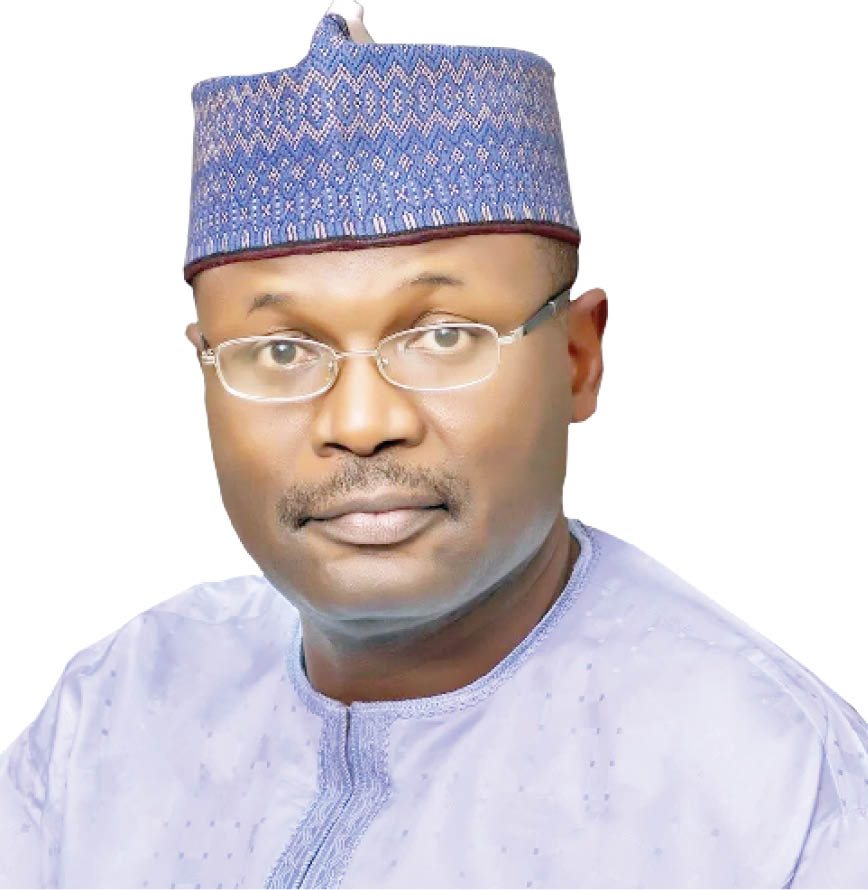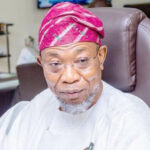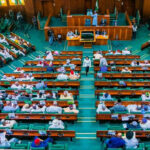Despite the efforts of the Independent National Electoral Commission (INEC) to clean the nation’s voters’ register, many Nigerians still see the register as bloated and over-bloated, like an Augean Stable that needs ‘Hercules’ determination to clean-up.
The INEC Chairman, Prof Mahmood Yakubu, in January this year ahead of the February 25 and March 11, 2023 General Elections, said that the commission added 9,518,188 eligible registrants in the national register of voters that was used for the elections.
The INEC boss said that for the 2019 general elections, Nigeria had a voter population of 84,004,084 and that after the cleaning up of the data from the last Continuous Voter Registration (CVR) exercise (June 2021 to July 2022); 9,518,188 new voters were added to the previous register, resulting in the preliminary register of 93,522,272 which was presented to Nigerians for claims and objections as required by law.
“At the end of the period for claims and objections by citizens, the commission received 53,264 objections from Nigerians to the prevalence of ineligible persons on the register by virtue of age, citizenship or death. These names have been verified and removed from the register.
Nigeria’s economy: A call for responsible governance
NIGERIA DAILY: What You Need To Know About Plateau House Of Assembly Drama
“Consequently, the register of voters for the 2023 general elections stands at 93,469,008. Of this cumulative figure, 49,054,162 (52.5 per cent) are males while 44,414,846 (47.5 per cent) are females,” Yakubu said.
However, at a recent ‘Policy Roundtable on improving the integrity of Nigeria’s Voter register’, organised by Yiaga Africa and UK’s Foreign, Commonwealth and Development Office (FCDO), a former INEC Chairman, Prof. Attahiru Muhammadu Jega and other stakeholders called for an urgent review of the Nigeria’s voter register.
Jega said that there is the absence of a legal and policy framework for cleaning the register and that there is also politically motivated inflation of the register, which led to Nigeria’s over-bloated voters’ register.
Jega said that as the country moves from the 2023 general elections to another election circle, there is a pressing need to clean up the voter register.
“We have to strive to improve the integrity of the election and voter registration must be a top priority. Elections cannot have integrity if the register lacks integrity,” Jega said.
He said though the national registration exercises have been conducted and the continued voter registration too, that there must be efforts to think towards a comprehensive review of the voter register.
“Positive changes have been recorded on the voter register over time. The major challenge remains and they should continue to improve its integrity which will also improve the integrity of elections.
“Nigeria’s voter register is one of the best in Africa, but not perfect. There is a need for improvement to bring the challenges to the barest minimum since there are issues you can’t totally eliminate,” Jega said.
Recalling that when he was in INEC, the commission had duplication software in the states and at the headquarters in Abuja, Jega also urged the training of INEC staff and motivation, as part of measures to addressing the challenges of errors.
“We should not allow the possibilities of allowing underage or foreigners in our register. Removing such people in the voter register is difficult,” Jega said.
The Executive Director, Yiaga Africa, Samson Itodo, said that data management and processing issues are a major problem with the register.
He noted that Nigeria has the largest database of registered voters in Africa and that for over 12 years of its use, INEC has undertaken several updates and did a cleanup of the register.
He, however, said that despite these efforts, the credibility and the accuracy of the voters’ register have been a major source of concern for a lot of stakeholders and that this was because the foundation of any credible election is nothing but a credible, accurate and authentic register of voters.
“We at Yiaga Africa believe that these concerns are not misplaced because both civil society groups and citizens continue to identify duplications, deceased voters, multiple registrants’ errors and inclusion of ineligible registrants on the voters’ register.
“Of a particular concern, us and also stakeholders is the continuous decline in voter turnout for elections, despite the high number of new registrants during voter registration,” he said.
He said that there is also poor inter-agency collaboration and that there are several pathways to raising the integrity of the present voter register.
“The voters’ register should be effectively linked to census, civic registration and other databases for easy verification and updating,” Itodo said.
Also, a former INEC National Commissioner, Prof. Okechukwu Ibeanu, presenting a discussion paper on improving the integrity of Nigeria’s voter register attributed the challenges with the register to the absence of legal and policy framework for its cleaning.
Ibeanu said that politically motivated inflation of the register, weak compilation and auditing practices, data management, poor interagency collaboration were part of the challenges of the register.
He said the creation of an interagency framework for the cleanup of the voters’ register should be effectively linked to census, civic registration and other databases.
He said that INEC needed to commence the full online registration process, discontinue the printing of voter cards and move the funds to voter registration whereas voter cards should be issued as paper documents at the point of registration.
He also said that INEC should use identity documents such as international passports, and national identity cards for voting and the commission should consider an independent audit of the voter register using qualified experts.
The Governance Advisor, FCDO, Mr Chris Okeke, said the organisation was committed to partnership with Nigerian stakeholders to strengthen Nigeria’s democratic institutions and processes.
“From our perspective, we are keen to hear from stakeholders on the best way and the pathway forward for improving the integrity of Nigeria’s voter register. We believe that by stakeholders coming together, to talk about the issues, to proffer solutions to the issues, we would get the buy-in of not just the citizens, but critical institutions in our democracy to move forward in this issue,” Okeke said.
Previous efforts of clean-up
The INEC Chairman, Prof Mahmood Yakubu, in April 2022 said that the introduction of the biometric registration of voters in 2011 had helped to sanitise the voters’ register.
According to him, initially, 73,528,040 Nigerians were registered in 2011 and that using the Automated Fingerprint Identification System (AFIS) the commission was able to remove 4,239,923 invalid registrations.
He said, “Unfortunately, the troubling issue of invalid registration still persists, which we detected while cleaning up the latest registration data. As against the AFIS used in previous exercises, the commission introduced the Automated Biometric Identification System (ABIS), which is a more comprehensive and robust system involving not just fingerprint identification, but also facial biometric recognition.
“Sadly, it seems that many registrants, either out of ignorance that they do not need to re-register if they had done so before, or a belief that our systems will not detect this infraction, have gone out to register again.”
Yakubu further said both categories: failure of ABIS and incomplete data, constituted invalid registration, lamenting that nearly 45 per cent of completed registrations nationwide were invalid, rising to as high as 60 per cent or more in some states, and that this infraction happened in all the states of the federation.
Legal provisions
On the legal details of the register, INEC’s Director, Voter Registry, Engr Iro Gambo, said the 1999 constitution (as amended) and Sections 9 to 23 of the Electoral Act 2022 empowered the commission to conduct the registration of persons qualified to vote and to prepare, maintain and revise the register of voters.
Speaking on under-aged registrants, which was one of the major challenges raised by Civil Society organisations (CSOs) as affecting the credibility of the voters’ register, the Chairman, Transition Monitoring Group (TMG) and Executive Director, Civil Society Legislative and Advocacy Centre (CISLAC), Auwal Musa Rafsanjani, said INEC must sanction officials found wanting in the registration of underage persons, warning that the development could affect the credibility of the polls if left unchecked.
“INEC has committed itself to ensure that underage registration would not happen. So, if we are seeing this kind of thing, it is an opportunity for INEC to re-commit itself and ensure that it eliminates duplication and underage registration.
“The truth is that INEC has tried to show to Nigerians that they won’t register underage voters but if it happens, it means that some internal staff of INEC have conspired to do something wrong.”

 Join Daily Trust WhatsApp Community For Quick Access To News and Happenings Around You.
Join Daily Trust WhatsApp Community For Quick Access To News and Happenings Around You.


